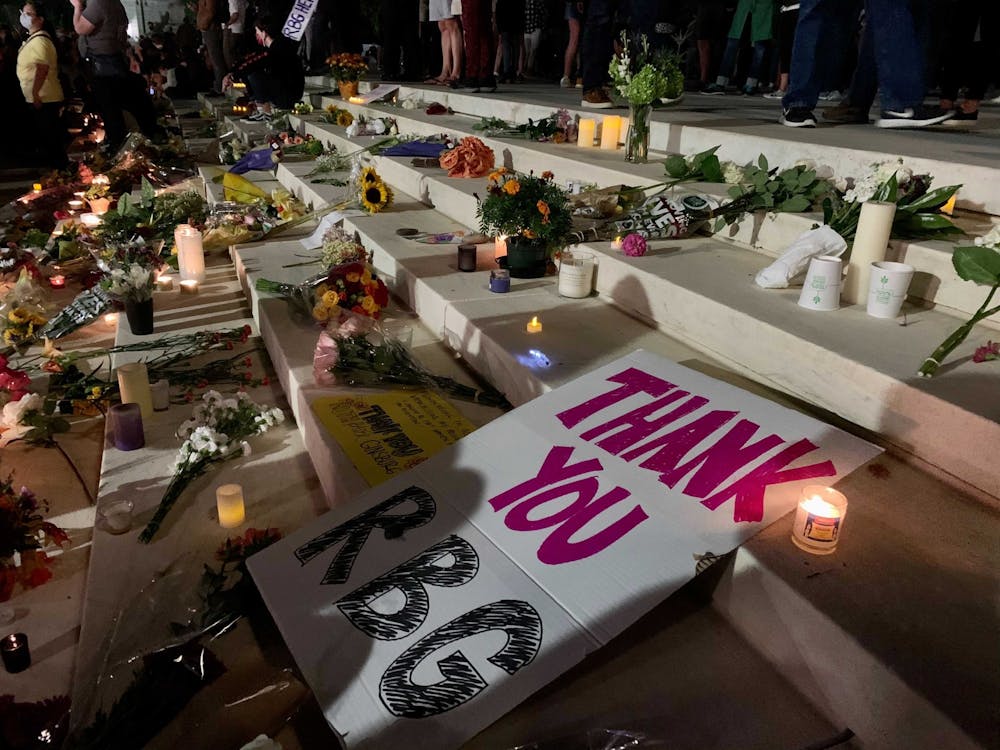Within minutes of hearing that Supreme Court Justice Ruth Bader Ginsburg passed away from complications with cancer on Sept. 18, members of the American University community began heading downtown for an impromptu vigil on the steps of the Supreme Court.
Less than two hours later, hundreds of people had gathered, many bearing signs, candles and pride flags to honor her landmark contributions to the rights of women and the LGBTQ+ community in the U.S. Some mourners wept as others led the crowd in song, even as other groups discussed the political fight already raging over Ginsburg’s now-vacant seat.
“Everyone was like, ‘Welp, we’ll be at the Supreme Court this evening if you need us,’ without question, because that’s just what you do in D.C.,” said Kayleigh Thompson, a senior in the School of International Service. “It was very peaceful, in a way. It felt very respectful and moving.”
Thompson recognized that while Ginsburg was an imperfect figure with well-documented biases, she pushed for progress that current generations must now improve upon and shoulder. Ginsburg’s achievements feel personal, as well — Thompson’s area of interest is a male-dominated field, but she feels emboldened by the late Justice’s contributions to women’s rights.
Ginsburg’s death also sheds light on the current state of U.S. politics, Thompson said, specifically the threats to overturn the Court’s Roe v. Wade decision, which could leave the decision of legal abortions up to the individual states.
“I’m from Ohio and we have one of the most restrictive abortion policies,” Thompson said. “I’ve always felt safe because I could just switch my residency over to D.C. full-time, and have better health conditions. Just having that opening is scary. My autonomy is in danger, LGBT safety is in danger.”
Dani Birzer, a graduate student studying journalism and public policy at AU, agreed that members of the LGBTQ+ community, like himself, feel especially threatened by the political shift that followed Ginsburg’s death.
“It changes and increases my fear of what’s to come,” Birzer said. News like this has become overwhelming, he added, with constant developments on the pandemic, economy, and politics.
“We’re not even allowed a moment’s peace to grieve,” Birzer said. “It seems insensitive, but it’s almost mind-boggling, to be honest.”
Rafael Cestero, a senior in the School of International Service, said he hoped that AU would hold some sort of remembrance for Ginsburg. She served as an inspiration to him, Cestero said, embodying exactly the kind of constitutional interpretation he believes in.
“She was also somewhat of a last stand in this time that we’re in,” Cestero said.





